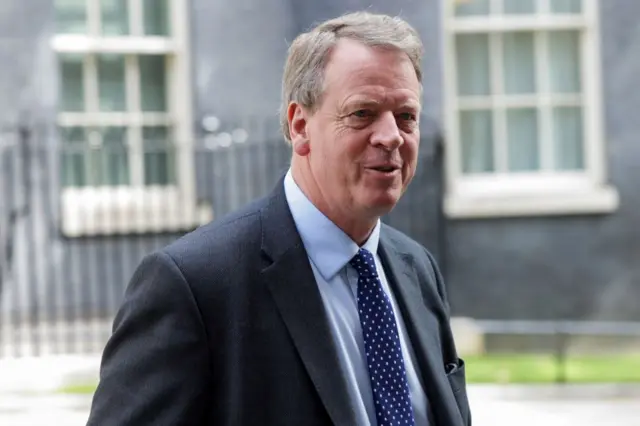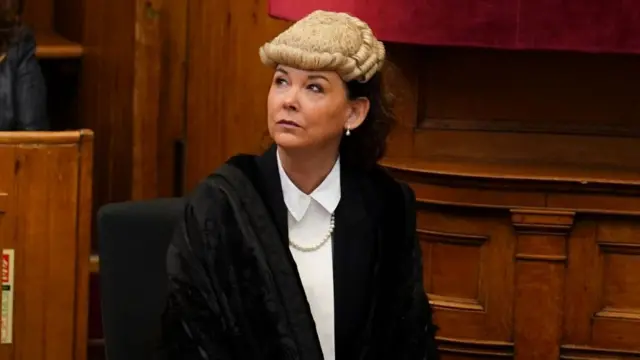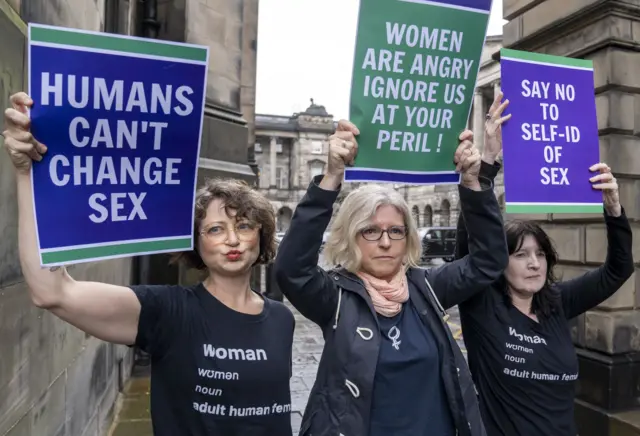The headlines from today's sessionpublished at 16:22 BST 19 September 2023
If you're just joining us, here is a quick catch-up of the main points to come out of today's Court of Session hearing.
- Scotland's top law officer, Lord Advocate Dorothy Bain KC, says the UK government's block on Scottish gender recognition reforms is unlawful
- She says the Court of Session has a "constitutional duty" to review the unprecedented use of a Section 35 Order by Downing Street
- The lord advocate insists the Scottish Secretary's intervention to veto the bill was politically motivated
- If the UK government is successful, Westminster "could veto practically any act of the Scottish Parliament", Dorothy Bain warns
- Scottish Secretary Alister Jack has raised concerns that it would affect the 2010 Equality Act, which applies in Scotland, England and Wales
That's it from us for today. The civil case, which is being heard by Lady Haldane, will resume at 10:00 on Wednesday with the UK government making its arguments.
We'll be back then to take you through it.








